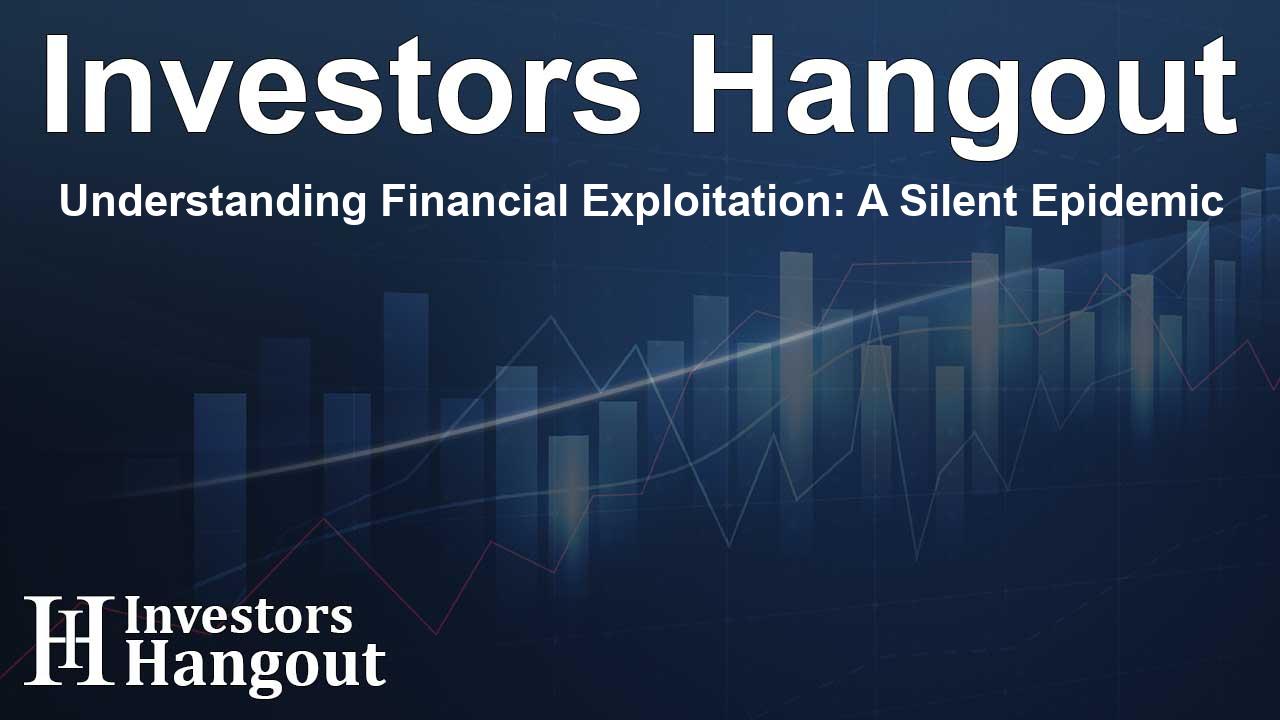Understanding Financial Exploitation: A Silent Epidemic

Understanding Financial Exploitation: A Silent Epidemic
As the world prepares to acknowledge the plight faced by seniors on World Elder Abuse Awareness Day, there is a crucial issue emerging: the financial exploitation of older adults. It often remains hidden from view yet has devastating consequences. This form of elder abuse steals much more than just money; it robs individuals of their independence, dignity, and trust.
Mary Bach, a devoted volunteer chairing the Consumer Issues Task Force, passionately emphasizes the impacts of financial exploitation. She indicates that this phenomenon is not simply about money misappropriation; it also involves a breach of trust. "Financial exploitation is a silent threat that can devastate lives," she states. It is critical for everyone in the community to be vigilant and proactive to help protect vulnerable individuals.
Instances of financial exploitation can arise in various ways. Often, it involves the unauthorized use of an older adult’s assets. This could be through manipulation involving power of attorney, coercive actions that lead to signing financial documents, or even outright theft by someone they trust. Unfortunately, this occurs not only between strangers but within familial relations and trusted circles as well.
Recognizing the Signs of Abuse
There are several warning signs to watch out for regarding elder financial abuse. Monitoring changes in an older person’s financial behavior is vital. Some key indicators include:
Changes in Financial Behavior
- Unanticipated alterations in banking activities, spending habits, or account balances
- Disappearance of personal belongings or valuables
- Unexplained modifications to vital documents like wills or power of attorney
- A caregiver restricting access to financial information
- Instances where older adults express concerns about financial matters
Speaking Up: Taking Action
In addition to being alert to the signs, taking necessary actions when something seems amiss can protect at-risk seniors. It's recommended to investigate any significant withdrawals or transactions that are unfamiliar or appear suspicious. Sometimes, older adults may forget details; however, significant financial dealings that they cannot recall authorizing should raise red flags.
If any signs of financial exploitation come to light, reporting these concerns to local law enforcement is crucial. Advocacy groups like AARP offer valuable resources and support for individuals who suspect financial exploitation, ensuring that victims receive assistance when they need it most.
The Role of Community Awareness
AARP Pennsylvania emphasizes the importance of education in preventing such exploitation. By providing community members with the knowledge to recognize the warning signs, they empower families and friends to act before significant damage occurs. Awareness campaigns play a pivotal role in mobilizing communities to protect their elders.
Empowering the Elderly
Furthermore, enabling older adults through financial literacy can deter exploiters. Equipping them with the necessary knowledge about their finances helps them notice and report suspicious activities. It is imperative that seniors feel empowered to speak out against any distressing occurrences in their financial interactions.
About AARP and Its Mission
AARP is committed to enhancing the quality of life for individuals aged 50 and above. Serving nearly 38 million members across the nation, AARP advocates for health security, financial stability, and personal fulfillment among older adults. Its diverse outreach initiatives contribute significantly to strengthening communities and ensuring that the voices of older individuals are heard.
For anyone seeking more information on combating financial exploitation or understanding elder abuse, resources are readily available. Connecting with local organizations and staying educated marks the first step in safeguarding our seniors.
Frequently Asked Questions
What is financial exploitation?
Financial exploitation involves the misuse of an older adult's financial resources, often through deceit or manipulation by someone they trust.
Who can be a perpetrator of financial exploitation?
Perpetrators can be trusted individuals, such as family members, caregivers, or even friends, as well as strangers who employ scams.
How can I recognize signs of financial exploitation?
Look for sudden changes in spending habits, missing valuables, or unexplained changes to important financial documents.
What should I do if I suspect financial exploitation?
Report your concerns to local law enforcement and consider reaching out to organizations dedicated to elder advocacy for additional support.
How does AARP help with financial exploitation issues?
AARP provides resources and information to help community members recognize financial exploitation and supports initiatives to combat this type of elder abuse.
About The Author
Contact Thomas Cooper privately here. Or send an email with ATTN: Thomas Cooper as the subject to contact@investorshangout.com.
About Investors Hangout
Investors Hangout is a leading online stock forum for financial discussion and learning, offering a wide range of free tools and resources. It draws in traders of all levels, who exchange market knowledge, investigate trading tactics, and keep an eye on industry developments in real time. Featuring financial articles, stock message boards, quotes, charts, company profiles, and live news updates. Through cooperative learning and a wealth of informational resources, it helps users from novices creating their first portfolios to experts honing their techniques. Join Investors Hangout today: https://investorshangout.com/
The content of this article is based on factual, publicly available information and does not represent legal, financial, or investment advice. Investors Hangout does not offer financial advice, and the author is not a licensed financial advisor. Consult a qualified advisor before making any financial or investment decisions based on this article. This article should not be considered advice to purchase, sell, or hold any securities or other investments. If any of the material provided here is inaccurate, please contact us for corrections.
